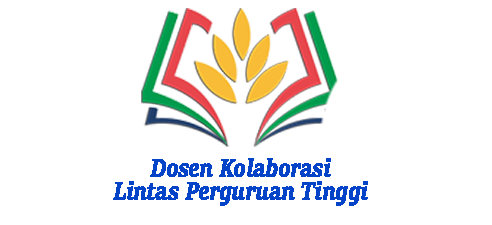Islamic Communication Ethics; Concepts and Applications In The Digital Era
DOI:
https://doi.org/10.54621/jiaf.v13i1.734Keywords:
Communication Ethics, Concept, Digital Era, Generation ZAbstract
Ethics is combined with communication, so ethics becomes the basic foundation in communication, ethics provides a moral foundation in building a moral system for all a person's attitudes and behavior in communication. However, ethical challenges and obstacles are the main thing in situations or problems that involve moral considerations or ethical principles in the communication process. For this reason, this paper tries to analyze the concept of Islamic communication ethics and its application in the digital era. the role of communication ethics in various aspects of life, including personal, professional and social relationships. Talking about ethics in Islam cannot be separated from the science of morals as a branch of Islamic religious knowledge. The library method was the choice for this research. The bibliographic method plays an important role in formulating the theoretical basis and conceptual framework. Comprehensive analysis of literature relevant to communication ethics. A qualitative approach is used to analyze data obtained from various scientific papers, books, research reports and other reliable sources. The research results reveal that communication ethics has ethical concepts, namely freedom, responsibility and conscience. There are two forms of communication studied, namely personal communication and mass communication. Communication ethics elaborates the ethical standards used by communicants and communicators. There are at least seven perspectives on communication ethics, namely: political perspective, human nature perspective, dialogical perspective, situational perspective, religious perspective, utilitarian perspective, and legal perspective. The application of communication ethics in the digital era is generation Z who uses information technology intuitively. Characteristics of Generation Z which tends to want instant and low ability to validate information. This behavior makes generation Z very easy to fall for information validation (hoaxes), this is what makes generation Z's social media ethics very bad. Generation Z is very at risk of negative things on the Internet or social media, it is not impossible that negative activities on the internet can be imitated directly in real life. So parents need to pay attention to the ethical treatment of their children on social media.
References
Abdullah, A., & Razali, R. (2024). Exploring Cash Waqf Models for Financial Modernisation in Dayah-Based Islamic Higher Education Institutions in Aceh : A Sociology of Islam Perspective. 14(1), 62–78.
Akunto, S. (2006). Prosedur Penelitian: Suatu Pendekatan Praktek Praktek. In Rineka Cipta (Vol. 2006, Issue 2006). Rineka Cipta.
Amiruddin. (2018). Konsep Pendidikan Akhlak Menurut Mahmud Yunus. Yayasan Madinah Al-Aziziyah.
Fauzan, F., & Nazaruddin, N. (2021). Etika Komunikasi Remaja Terhadap Orang Tua Ditinjau Dari Psikologi Perkembangan Remaja. Al-Madaris, 2(2), 61–71.
Hastini, L. Y., Fahmi, R., & Lukito, H. (2020). Apakah Pembelajaran Menggunakan Teknologi dapat Meningkatkan Literasi Manusia pada Generasi Z di Indonesia? Jurnal Manajemen Informatika (JAMIKA), 10(1), 12–28. https://doi.org/10.34010/jamika.v10i1.2678
Ike, A. (2018). “Understanding Generation Z Closer” (pp. 1–18). Islamic University of Indonesia.
Kartini, F. (2021). Implementasi Amar Ma’ruf Nahi Munkar dalam Kehidupan Sosial. At-Tanzir: Jurnal Prodi Komunikasi Dan Penyiaran Islam, 12(1).
Movitaria, M. A., Teungku Amiruddin, Ade Putra Ode Amane, Muhammad Munir, & Qurnia Indah Permata Sari. (2024). Metodologi Penelitian. CV. Afasa Pustaka.
Mufid, M. (2009). Ethics and Philosophy of Communication. Jakarta.
Muslimah. (2016). Etika Komunikasi dalam Persfektif Islam. Sosial Budaya, 13(2), 115–126.
Soesanto, D. P., & Shaufi, M. (2019). Komunikasi Orang Tua dengan Anak dalam Upaya Mengantisipasi Kebebasan Seks di Luar Nikah. Communication, 10(2), 208–222.
Sugiyono. (2012). Metode Penelitian Kuantitatif. Alfabeta.
Published
How to Cite
Issue
Section
Copyright (c) 2024 Kamaruddin Hasan, Abdullah, Ahyar

This work is licensed under a Creative Commons Attribution-ShareAlike 4.0 International License.












